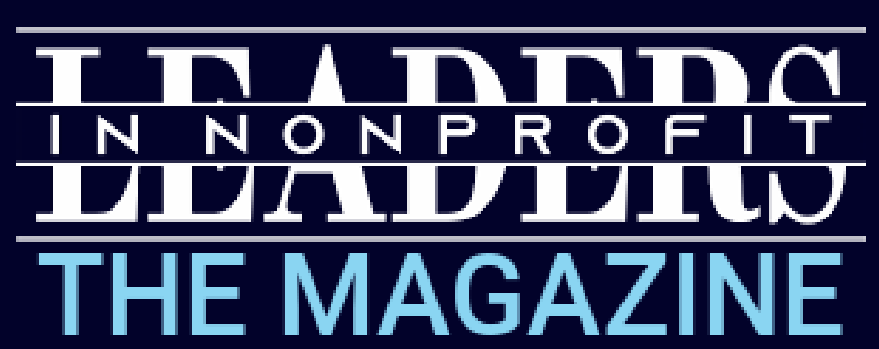How Can Nonprofits Embrace Data without Losing Their Heart?
In the realm of nonprofit organizations, where the mission is often rooted in compassion, empathy, and a deep desire to create positive change, decision-making can be a complex dance. Should nonprofits rely solely on data to drive their strategies, or should they let their hearts guide their choices? The truth lies in a delicate balance between the two, harnessing the power of both data and passion to steer their mission effectively.
The Power of Data
Data-driven decision-making has revolutionized many sectors, and the nonprofit world is no exception. Utilizing data can lead to more informed, objective, and impactful decisions. Here are some key advantages:
Enhanced Accountability: Data provides measurable evidence of impact, which is crucial for maintaining transparency and accountability to donors, beneficiaries, and stakeholders. It helps demonstrate that resources are being used effectively and goals are being met.
Informed Strategy: Data analytics can reveal trends, identify gaps, and highlight areas of need. By understanding these patterns, nonprofits can strategically allocate resources, tailor their programs, and maximize their impact.
Optimized Operations: Data can uncover inefficiencies and suggest improvements in operational processes. From volunteer management to fundraising strategies, data-driven insights can streamline operations and boost productivity.
Leading with Heart
While data provides a solid foundation for decision-making, it is the heart that often drives the passion and commitment behind nonprofit work. Heart-led decisions ensure that empathy, compassion, and the human element remain central, fostering trust and building stronger relationships with the community and beneficiaries. They ensure alignment with the organization’s mission and values, maintaining the integrity and authenticity of the organization. Situations often arise that require immediate, empathetic responses that data alone cannot address. Heart-led decisions allow nonprofits to be more adaptable and responsive to the urgent needs of their communities.

Informed Compassion
For nonprofits, the real strength lies in blending data with heart. A balanced approach involves using data to inform decisions, but not letting it be the sole driver. Combining data insights with the organization’s mission, values, and the nuanced understanding that comes from being deeply embedded in the community is key.
Data should be gathered in ways that respect and involve the community, with surveys, interviews, and participatory research providing rich qualitative data that complements quantitative metrics, ensuring a fuller picture of needs and impact. A culture that values both data and compassion should be fostered, training staff to interpret data while encouraging them to maintain their emotional intelligence ensures decisions are both informed and empathetic. Creating systems for continuous feedback from both data and human experiences is crucial. Regularly assessing the effectiveness of programs and strategies, making adjustments as needed based on a combination of statistical evidence and heartfelt feedback from beneficiaries and stakeholders, ensures a holistic approach.
Inspiring Models of Nonprofits Leading with Both Data and Compassion
In the nonprofit sector, there are organizations that are adept at balancing data-driven methodologies with genuine compassion. They are examples of finding the synergy between analytical precision and empathetic connection. Here are a few nonprofits that lead with both data and heart:

Feeding America
AI-powered chatbots and virtual assistants can streamline donor interactions and provide instant support. These intelligent systems can answer frequently asked questions, provide donation-related information, and offer personalized guidance to donors. By automating routine tasks, nonprofits can free up staff resources and allocate them to more strategic initiatives. Donors, in turn, benefit from immediate and personalized support, creating a seamless and satisfying giving experience.
Room to Read
Feeding America is the largest hunger-relief organization in the United States, providing food assistance to millions of Americans facing food insecurity. While Feeding America relies on data to identify areas of high need and optimize food distribution logistics, they also prioritize the dignity and well-being of their clients. Their network of food banks offers a range of supportive services beyond food provision, such as job training and nutrition education, demonstrating a commitment to holistic support rooted in compassion.


Kiva
Kiva is a nonprofit organization that facilitates microloans to individuals and small businesses in developing countries. While Kiva employs data analytics to assess risk and track loan performance, they also emphasize the human stories behind each loan, connecting lenders with borrowers on a personal level. This approach combines data-driven decision-making with a deep sense of empathy for the individuals and communities they serve.
Nonprofits exist at the intersection of data and heart. By embracing both the analytical insights and the human narratives, nonprofits can navigate complexities with a nuanced understanding that honors both the numbers and the individuals behind them. In this ever-evolving world where metrics often dominate, it’s imperative to hold onto the fundamental truth that every nonprofit’s essence lies in its commitment to humanity. Thus, by striking a harmonious balance between data and empathy, nonprofits uphold their core values while achieving tangible, transformative impacts that resonate far beyond statistical measures.



